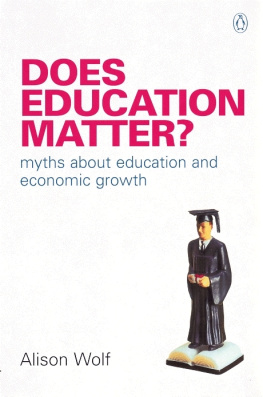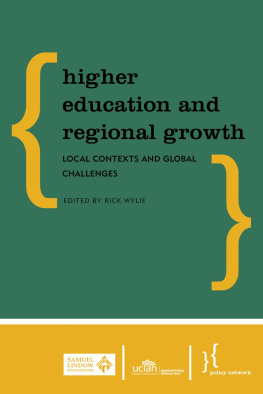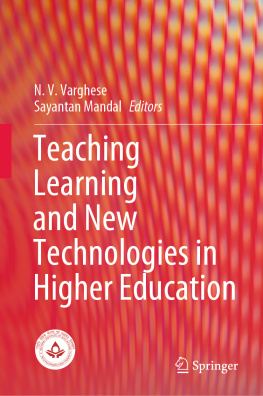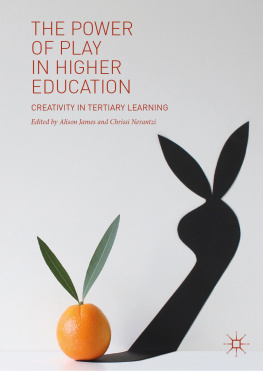PENGUIN BOOKS
Does Education Matter?
Alison Wolf was educated at the universities of Oxford and Neuchtel. She then lived in the United States, working largely for a federal agency and evaluating education policies for the US Congress, but also as a university teacher, journalist and researcher. Since returning to the UK, she has been an academic and researcher, and has published widely on education and the labour market, and on assessment, qualifications and skills. She is currently Professor of Education at the University of Londons Institute of Education, where she directs the International Centre for Research on Assessment. Alison Wolf lives in London and is married with three children.
ALISON WOLF
Does Education Matter?
Myths about Education and Economic Growth

PENGUIN BOOKS
PENGUIN BOOKS
Published by the Penguin Group
Penguin Books Ltd, 80 Strand, London WC2R 0RL , England
Penguin Putnam Inc., 375 Hudson Street, New York, New York 10014, USA
Penguin Books Australia Ltd, 250 Camberwell Road, Camberwell, Victoria 3124, Australia
Penguin Books Canada Ltd, 10 Alcorn Avenue, Toronto, Ontario, Canada M4V 3B2
Penguin Books India (P) Ltd, 11, Community Centre, Panchsheel Park, New Delhi 110 017, India
Penguin Books (NZ) Ltd, Cnr Rosedale and Airborne Roads, Albany, Auckland, New Zealand
Penguin Books (South Africa) (Pty) Ltd, 24 Sturdee Avenue, Rosebank 2196, South Africa
Penguin Books Ltd, Registered Offices: 80 Strand, London WC2R 0RL , England
www.penguin.com
First published 2002
7
Copyright Alison Wolf, 2002
All rights reserved
The moral right of the author has been asserted
Except in the United States of America, this book is sold subject to the condition that it shall not, by way of trade or otherwise, be lent, re-sold, hired out, or otherwise circulated without the publishers prior consent in any form of binding or cover other than that in which it is published and without a similar condition including this condition being imposed on the subsequent purchaser
ISBN: 978-0-14-193566-9
ContentsAcknowledgementsThis book draws on many years experience as a government analyst, a researcher, a consultant and an academic observer of education policy. During that time I have learned a great deal from colleagues inside and outside government and the universities, not least from arguments in which I sometimes changed my mind (and sometimes didnt) and sometimes convinced others (and often failed). I hope that, in reading this book, people will feel that I have dealt fairly with recent history, and excuse the fact that I have not been able to acknowledge each and every intellectual debt.
Special thanks are owed to people who provided direct research assistance when I was preparing the manuscript: Sutupa Choudhury, Nick Dean, Rhoda Mukasa, Wendy Robins, Chris Tryhorn and Alex von Tunzelmann. Claire Callender, Ron Dore, Harvey Goldstein, Tina Isaacs, Peter Robinson, Paul Ryan, Anna Vignoles, Jonathan Wolf and Martin Wolf all read some or all of the manuscript and provided me with detailed and very helpful comments (not least on sections with which some of them disagreed strongly). Responsibility for the final version is, of course, entirely mine. I am also very grateful to a number of people who, usually at ridiculously short notice, helped me by finding unpublished statistics, lost publications and stray facts. They include (in no particular order) Janet Sturgis, Stephen Pickles, Steve Kee, David Collins, Giliberto Capano, Annie Bouder, Samantha Parsons, Barbara Kehm, Jochen Reuling, Mike Coles, a number of anonymous Oxford college administrators, Peter Senker and Hilary Steedman; and I would also like to acknowledge the general excellence of the Institute of Education library.
This book would certainly never have been written without Susan Pollock, its original editor: my thanks to her, and also to Prospect magazine, where a 1998 article by me gave her the original idea. Martin Toseland, my editor at Penguin, has been admirably calm about continued delays and an excellent critical reader. My family has been remarkably patient and supportive, though I owe a particular debt to my mother, without whose constant enquiries (Is it finished yet?) there might never have been a completed manuscript. Most of all, however, I would like to acknowledge the contribution of my administrative assistant, Magdalen Meade, who has typed up corrections, created complex figures, hunted down information and references, corrected my punctuation and my prose, and dealt with copy-editing queries, and to whom I owe an enormous debt of gratitude for all her help.
London, 2001
IntroductionOur number one priority for investment is education.
Tony Blair, 1999
Education remains [our] top priority .
Labour Party manifesto, 2001
At the start of the twenty-first century, we inhabit a globe in the grip of consensus. The worlds voters think their governments can and should deliver economic prosperity. Their elites agree with them and even agree with each other on how to do it. Increasingly they sign up to the same package: free trade, market economics, the virtues of entrepreneurship and education, education, education.
For decades now the British government like governments in general has become more and more fixated on education. It spends more and more money: on pre-school education, on Literacy Strategies, and on Technical and Vocational Education Initiatives; on new universities and new associate degrees in further education colleges; on city technology colleges, Youth Opportunity Programmes, national training organizations, and Modern Apprenticeship. In 2001, education spending by the public sector will have topped 50 billion: 850 for every man, woman and child in the United Kingdom more than 1,800 for every payer of income tax. This is level pegging with the National Health Service, but considerably more than on defence and law and order combined.
Nor is it just a matter of spending. Prime ministers from Callaghan to Blair have made education the subject of their most high-profile speeches. From their Whitehall fastnesses, education ministers have involved themselves ever more in the minutiae of educational practice, unwilling to trust so precious a charge either to the professionals or to local politicians. In the last quarter of the twentieth century British central governments busied themselves with creating a national curriculum, laying down the details of classroom practice, and bringing examination boards under centralized control. They nationalized apprenticeships and vocational qualifications, and established new bodies to monitor universities and create national standards for degrees. During the first three years of the Blair government, the Department for Education and Employment (DfEE) in London launched the equivalent of one new educational initiative or set of instructions for every single day of the year.
Have we become a nation of scholars? Hardly. Amid all this frenetic spending and organizing and reorganizing and spending, the idea of old-fashioned scholarship figures almost nowhere. Education is big because it is seen as the engine of economic growth, a sure-fire route to future prosperity and victory in a global competition. Politicians worldwide have signed up to this vision, and have the power (and taxpayers money) to create ever larger, ever more expensive education sectors. But the belief in education for growth runs deep and wide beyond our political classes, replacing socialism as the great secular faith of our age.
One evening a year or so ago, I found myself at a working dinner in a typical windowless conference room. My fellow diners were mildly eminent and seriously rich; the topic was how poor countries could follow Korea, Thailand, Taiwan and other tiger economies into decades of rapid growth. The consensus was easy and total: the right policies were simple to identify (if hard to achieve). What was needed was the rule of law, market economies, access to overseas markets through free trade, and much, much more education spending. The sole educationist present, I demurred just a little. More education spending might not, I suggested, be the top priority in most of the worlds poorest nations. The reaction rather took me aback. As a social gaffe, mine went far beyond mistakes with the fish knife, or in passing the port. Questioning the automatic value of any rise in the education budget, it seems, places one somewhere between an animal-hater and an imbecile.
Next page









